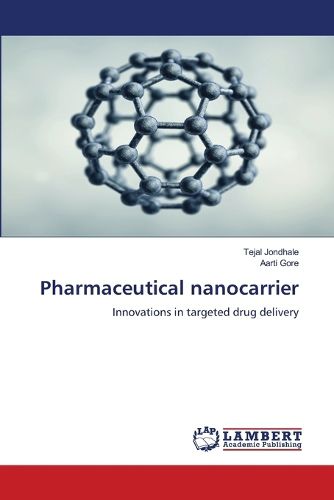Readings Newsletter
Become a Readings Member to make your shopping experience even easier.
Sign in or sign up for free!
You’re not far away from qualifying for FREE standard shipping within Australia
You’ve qualified for FREE standard shipping within Australia
The cart is loading…






Pharmaceutical nanocarriers are advanced drug delivery systems designed to improve the efficacy, specificity, and safety of therapeutic agents. These nanoscale vehicles-such as liposomes, niosomes, monoclonal antibody, dendrimer, Quantum dot, carbon nanotube, hydrogel, polymeric nanoparticles, micelles, dendrimers, and solid lipid nanoparticles-are engineered to deliver drugs directly to specific sites in the body, minimizing systemic side effects and enhancing therapeutic outcomes. Innovations in nanocarrier technology focus on improving drug stability, controlled release, and targeted delivery through surface modifications, such as ligand attachment for receptor-mediated targeting. Emerging approaches also include stimuli-responsive carriers, which release their payload in response to environmental triggers like pH, temperature, or enzymes. These advancements have significant implications for treating complex diseases, including cancer, neurological disorders, and infections, paving the way for more personalized and effective medicine.
$9.00 standard shipping within Australia
FREE standard shipping within Australia for orders over $100.00
Express & International shipping calculated at checkout
Pharmaceutical nanocarriers are advanced drug delivery systems designed to improve the efficacy, specificity, and safety of therapeutic agents. These nanoscale vehicles-such as liposomes, niosomes, monoclonal antibody, dendrimer, Quantum dot, carbon nanotube, hydrogel, polymeric nanoparticles, micelles, dendrimers, and solid lipid nanoparticles-are engineered to deliver drugs directly to specific sites in the body, minimizing systemic side effects and enhancing therapeutic outcomes. Innovations in nanocarrier technology focus on improving drug stability, controlled release, and targeted delivery through surface modifications, such as ligand attachment for receptor-mediated targeting. Emerging approaches also include stimuli-responsive carriers, which release their payload in response to environmental triggers like pH, temperature, or enzymes. These advancements have significant implications for treating complex diseases, including cancer, neurological disorders, and infections, paving the way for more personalized and effective medicine.